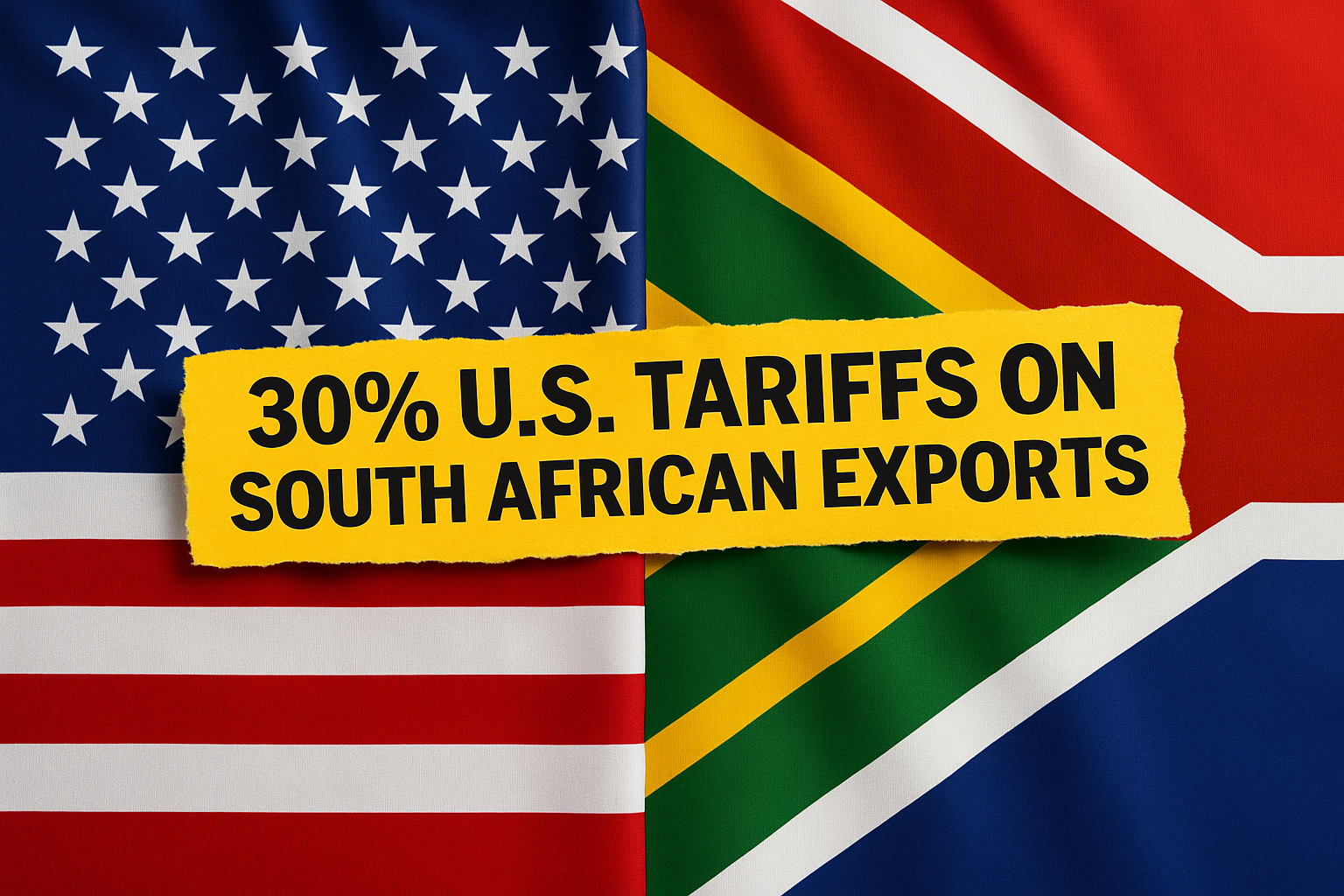- August 3, 2025
- 235 views

In a move sending ripples through international trade corridors, the United States has announced a 30% tariff on selected South African exports. This decision is part of a broader strategy to protect American industries, but it poses serious challenges for South Africa’s economy, especially for exporters and small to medium-sized businesses.
What Products Are Affected?
The new tariffs primarily target agricultural products, automotive components, steel and mineral-based exports - key pillars of South Africa’s international trade. For years, these sectors have enjoyed competitive advantages in U.S. markets due to preferential trade agreements such as AGOA (African Growth and Opportunity Act). However, the new duties will drastically alter pricing structures, making South African goods significantly more expensive and potentially less attractive to American importers.
Economic Impact at Home
The implications for the South African economy could be substantial. The United States is one of our largest trading partners and any disruption in this relationship can lead to lower export volumes, job losses and reduced income for local manufacturers and farmers.
Industries that rely heavily on U.S. sales, such as fruit exporters in the Western Cape or vehicle part suppliers in Gauteng, are bracing for difficult months ahead. SMEs in particular are expected to struggle, as they have fewer resources to absorb losses or redirect their products to new markets.
Government and Industry Response
The South African government has confirmed that it is actively engaging with U.S. trade representatives to negotiate tariff reductions or possible exemptions. Trade and Industry officials argue that these new measures undermine years of cooperation and threaten regional economic development.
Export councils and industry bodies are also calling for urgent diversification of export markets, as well as support mechanisms to protect vulnerable businesses during this period of adjustment.
Broader Global Trade Context
This development is part of a global trend where protectionist policies are increasingly impacting emerging economies. While the tariffs are not a complete trade ban, they are a strong signal of shifting priorities in global economic partnerships.
For South African exporters, the message is clear: adaptability and market agility will be essential going forward. Businesses are encouraged to reassess supply chains, consider alternative export destinations and stay informed about evolving trade policies.



